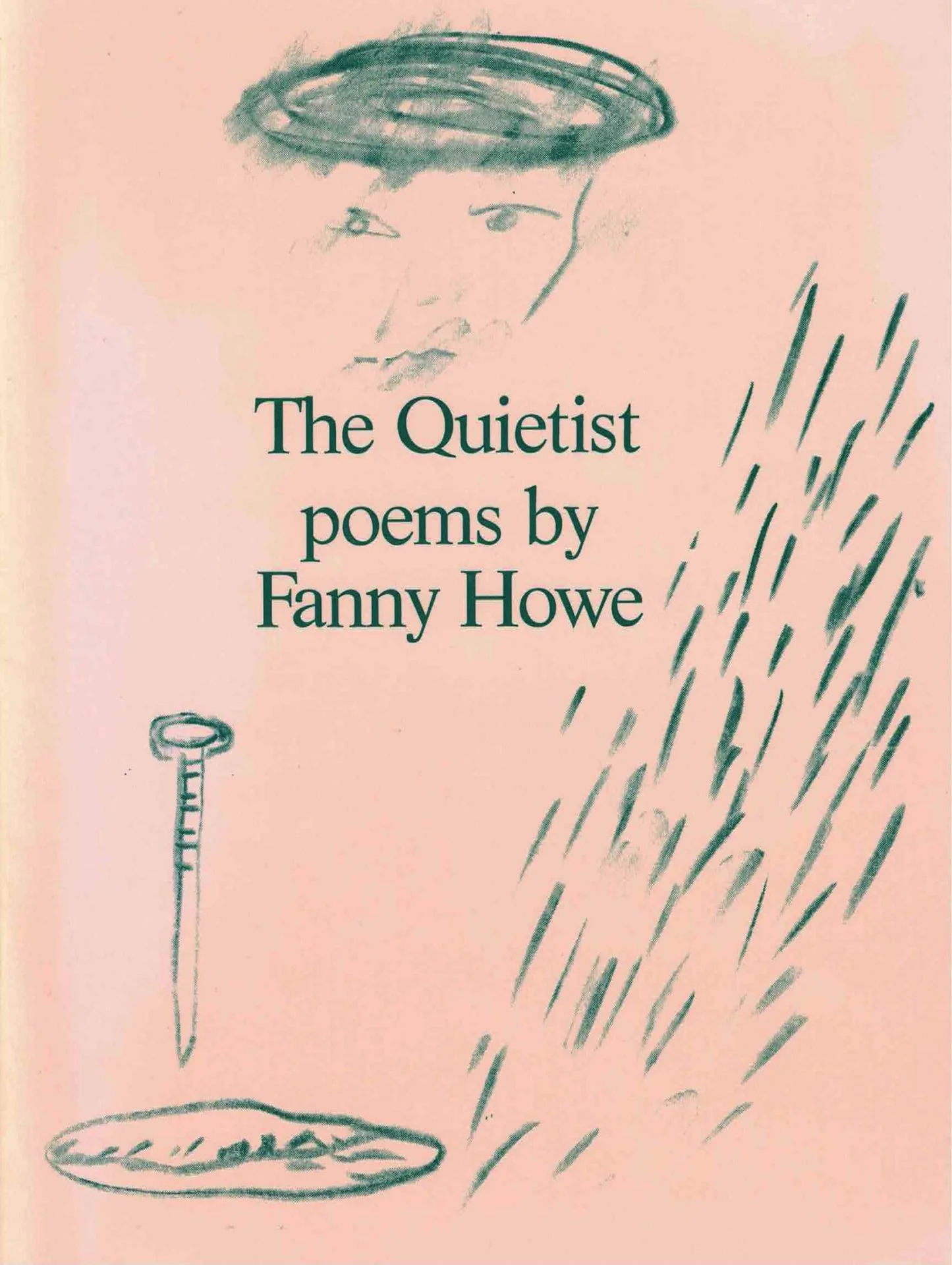
R.I.P. Fanny Howe
“Paradoxically it was during a divorce that I came to believe in vows. I remember the hour when it hit. I was riding a bike in Reno, Nevada in the fall of 1964. The sun was blazing down. I didn’t want to go to my job at Harrah’s but I had no money. I didn’t want to go to anything or see anyone. I was a “walking breakdown.”

Dear Kevin
You’ve been dead for a week now, and I’ve been seized by a kind of mania in trying to track down that original letter . . . a desperate need for a detail. This happens after the person who could corroborate that detail is gone. You are that person now, Kevin. You’re dead, and I’m a wreck.

Service Economy
It was just about here, five pages in, that I began to feel a desire to write about this extraordinary book. Something about Kunin’s framing of the poem’s underlying aggression got to me. That’s the magic of Love Three. It sneaks up on you, then overpowers you. The relentless, titillating, intellectual pleasure of it. Of candor, of clear, unfashionable, insight, Kunin’s Love Three is a masterpiece.

R. I. P. Emmanuel Hocquard, 1940-2019
I am very saddened to learn that French poet Emmanuel Hocquard, a singular poet, a singular person, has died. I knew he was ailing, but I had hoped I might see him one more time.

The Makers’ Spell
I treated myself in the final days of 2018 to a reading of Ann Lauterbach’s book of poems, Spell. It’s an amazing book. Passing my eyes over its pages provoked in me singular journeys down enticing mental avenues until I’d look up from the page in a swoon of contemplation.

Hunting Class
“Hunting in Maine is not obviously riven with centuries of class and privilege” writes Helen Macdonald in H Is for Hawk, a book that, though recommended with high praise by Robert Adamson almost two years ago, I’ve just gotten around to reading.

John Donne, Dodie Bellamy, and the fear of Ayre and Vapours
I just happen to find myself easing out my evenings by reading two works about sickness: John Donne’s twenty-three meditations titled Devotions Upon Emergent Occasions and severall steps in my Sicknes and Dodie Bellamy’s When the Sick Rule the World. They are speaking to each other in fascinating ways.

Diabolical Mimicry, Plagiarism by Anticipation, and a Simply Divine Convergence
You can imagine my delight, therefore, when deep into my reading of Coward’s verses, my eye fell upon a poem titled “Convalescence,” which just happened to bear an uncanny resemblance to my own poem, written decades afterwards, “Dividend of the Social Opt Out.

Thirty Years Ago Today
As 2016 turned into 2017 my husband Steve Evans reminded me that this night was in fact the thirty year anniversary of the New Year’s Eve that could, from a certain perspective, be said to be the beginning of our relationship.

Those Analog Days
Many of us remember how precious recordings of poets used to seem: passing around bootlegged cassette tapes of the 1965 Berkeley Poetry conference or of Spicer's Vancouver lectures; cherishing the limited (but precious!) Caedmon catalog, John Gielgud reading T. S. Eliot, Stein’s few portraits, etc. Filching covertly from archives.

Orpheus and Opera, a Love Story
For poetry and opera have, as Pound wrote of himself and Whitman, “one sap and one root.” The ancient tree from which they both grew was incited to the “movement of meaning through time”[1] by the figure of Orpheus.

The Poet’s Two Bodies
If you are a teacher and a poet perhaps you have noticed how your classroom presence, though ostensibly premised on your artistic accomplishments, can be utterly absent of them. I refer to those awkward ego confounding moments when, after the visiting writer has concluded a classroom visit, your beloved students, aglow, turn to you and proclaim, “so cool to meet an actual published author!”

Stephen Rodefer: November 20, 1940 — August 22, 2015
I feel a mix of nostalgia and melancholy today, occasioned by the news that my old teacher and sometime friend, poet Stephen Rodefer, has died in Paris.

Forché at Fifteen and Fifty
I was only fourteen, however, when I first encountered Carolyn Forché. Here’s how I remember it . . .

A New Risset Poem
“Look” showcases some of the recurrent themes of Risset’s poetic and intellectual work: the desire to collapse the distances between self and other and between thought and feeling, as well as her tendency to spatialize the mind through metaphor.

That Obscure Object
Which leads me to wonder, how many other “clear images” have I written with nary more than a nod to some past sense-experience with an object now totally obscure?

The Poetics of Letters
A correspondence continued over many years with the same person allows for the slow development of aesthetic ideas in an environment of trust, trust built via subsequent confessions, the sharing of ideas, and yes, texts.

Rituals and Respects
The liturgies of poetry, one might call them: pilgrimages, offerings, silence, ceremonious readings in significant places, benedictions, and genuflections. The material book, from codex to paperback, seems to encourage ritualistic behavior: the slow unrolling or turning of pages, a treasure of magical knowledge waiting to be released.

Author Function
The whole charade surrounding the “grandiosity of authors” just makes me embarrassed. I realize that the Miami Book Fair hopes to promote literary culture in part by treating authors as stars—but as Foucault articulated, the Author Function does not come about by an act of “spontaneous attribution”— such as hanging a tag with the word “author” around the neck of a poet.

On Signing and Selling Books
For the poet, nothing makes the “herte” full suddenly “gan to colde” than encountering a warmly signed copy of one’s own book not where or when expected, in a used bookstore, or perhaps even on the shelves of someone other than the dedicatee.